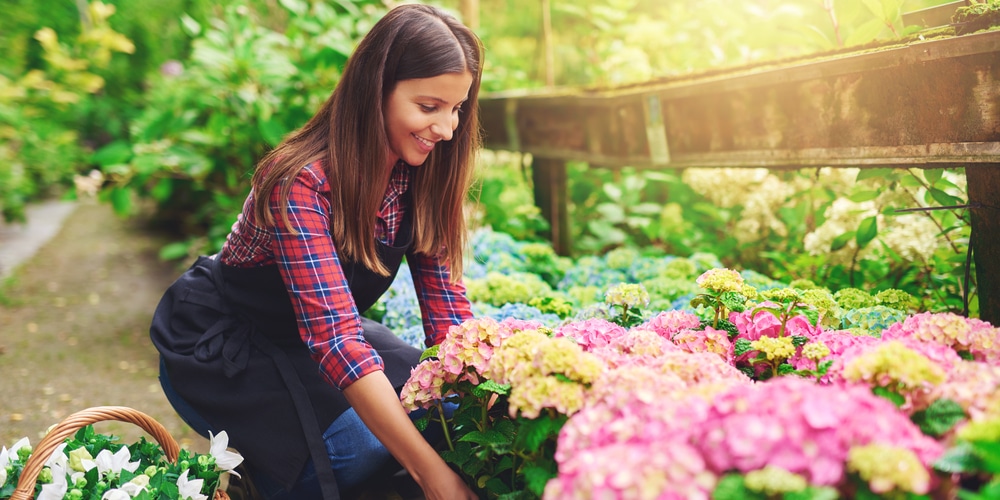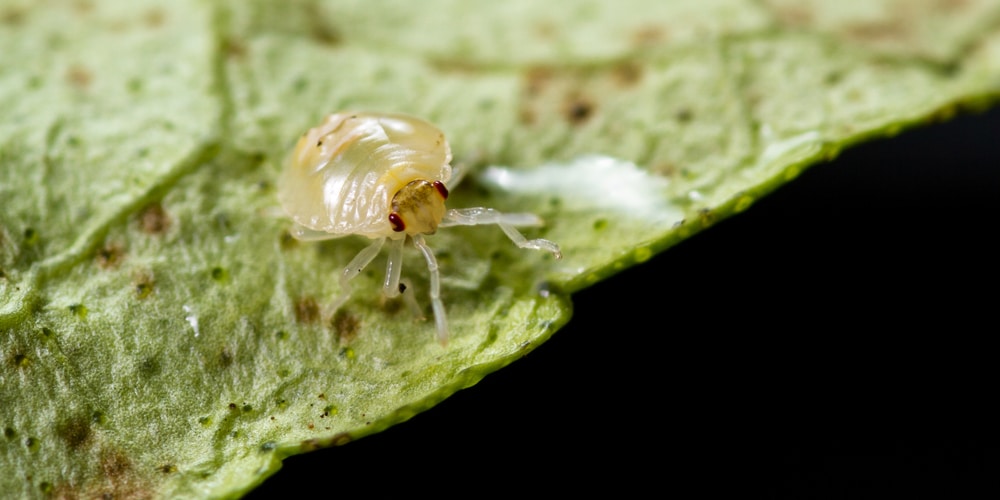Hydrangeas are gorgeous flowering shrubs that do well in various climates and weather conditions. If you want to enjoy a long blooming season, you should plant these species around your garden. But “what is eating my hydrangea leaves?”. You might start wondering this when your notice your plant stops blooming or when leaves present holes.
Hydrangeas are relatively easy to grow. However, you might have to prevent pests from attacking them.
Read on to find out a list of possible pests you might have to stop feeding on your plants (and our recommendations to eliminate them)!
What’s Eating My Hydrangea Leaves: Insects that Like to Eat Hydrangea
Common insects that like to eat hydrangea include:
- Aphids – prefer to suck the plants’ juice from the underside of the leaves. Look for tiny green insects.
- Beetles – different varieties of beetles like to feed on hydrangea. They will usually leave irregularly shaped holes.
- Scale- are small to see. But you can identify them by looking at your plants’ stems: if you notice clusters of white eggs, you might be dealing with a scale infestation.
- Caterpillars – love to munch on hydrangeas’ leaves. You might have more problems with these bugs in spring and late fall.
- Slugs- feed primarily on decaying matter but won’t hesitate to munch on your hydrangea leaves. Don’t forget that these insects prefer cool and moist conditions. Because hydrangeas love moisture, the environment around these plants is ideal for slugs. Look for traces of the mucous they leave behind.
- Spider Mites – are almost invisible to the naked eye, but they can cause severe damage to your plant and halt its growth. If you notice webs around your plant and leaves, you’ll need to eliminate spider mites.
If you notice holes in your plants’ leaves, we suggest you take prompt action to eliminate them.
Waiting will only make the problems worse. And in no time, you might be dealing with a severe infestation. Jump to the next section to find what measures you should consider taking.
How to Treat Hydrangea For Insects
Of course, when it comes to treating plants for insects infestations, you can consider chemical and natural remedies. We suggest you try organic solutions first.
After all, pesticides might harm beneficial insects (like butterflies and bees) and even cause damage to other plants.
Insecticides
If you deal with a severe infestation, you will have to act quickly to prevent your plant from suffering irreversible damage. Spray your plants with an insecticide that contains Bacillus Thurigiensis Kurstaki to avoid harming other plants.
Natural Remedies
To begin with, you can handpick the bugs from your plant. Throw them in a bucket of soapy water to kill them.
To keep slugs away, avoid mulching in your garden. Add sharp fragments of shells, sand, or diatomaceous earth to prevent them from getting near your plants.
If other insects are feeding on your hydrangea, consider spreading your plant’s leaves with neem oil or a solution of water and dishwasher soap. Alternatively, consider spraying your hydrangeas with water from the hose.
The pressure should be high (but not too much, or you may damage your plant).
Consider adding companions plants around your hydrangeas to attract natural predators. For instance, ladybugs eat spider mites and aphids. Add sunflowers, black-eyed Susans, or perennial herbs.
Animals that Like to Eat Hydrangea
Insects aren’t the only creatures that might bother your plants. Depending on where you live, some animals might also cause you trouble. Keep an eye out for:
- Deer
- Small Rodents
- Raccoons
If you live near a forest, the sight of mammals visiting your yard might not surprise you. And while they might look cute, the damage they cause isn’t. For this reason, taking the necessary precautions and measures to stop animals from eating hydrangeas will save you from future headaches.
How to Stop Animals from Eating Hydrangea
To stop animals from eating hydrangea, the best thing you can do is add physical barriers. Install a tall fence to repel deer(these animals can jump high!).
Consider letting your dog run around your yard (if you have one): its smell will scare away deer. Alternatively, consider getting products that resemble the scent of predators’ urine.
If you are dealing with rodents, try to make the environment undesirable for them. Remove all clutter you may have, place traps around, and consider adding underground barriers to prevent them from digging.
Related Article: Do Hydrangeas Grow In Arizona?

